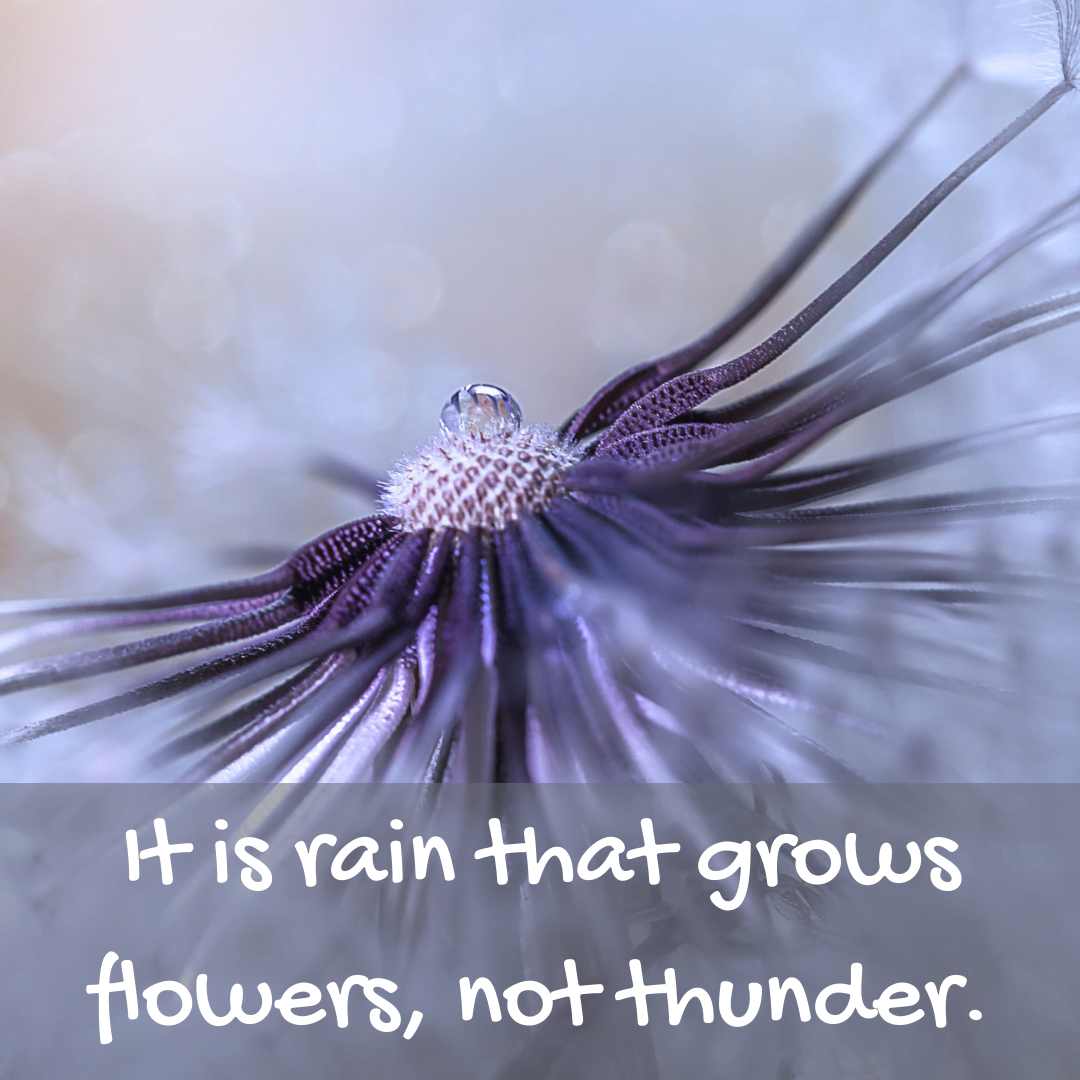When you think of rain, what thoughts come to mind? You likely think of words like “calm,” “peaceful,” and gentle. Now, what do you think of when you hear the word “thunder”? You probably think of words like “loud,” “frightening,” or “booming.” So, do you prefer rain or thunder?
The quote “It is rain that grows flowers, not thunder,” refers to effective communication. More specifically, it means that yelling does more damage than good, and we should strive to use more effective means of conflict management.
Why Do People Yell?
While there are many reasons that people yell, yelling is typically associated with aggression. People yell during arguments because they think it will make the other person listen to what they are saying, but it typically has the opposite effect by increasing stress and tension.
Yelling is also used to motivate someone to do something, though it is rarely a successful tactic. Rather than motivating, yelling often brings about strong emotions in the other person which makes them more resistant to change.
Yelling Causes Damage
It Increases the Probability of Psychological Conditions
Studies have shown that children and adults who are frequently yelled at are at higher risk of developing anxiety and depression. In addition, they are likely to have chronic stress, low self-esteem, chronic psychological pain, and chronic headaches.
It Can Be Considered Verbal Abuse
Yelling can cause significant damage to a person’s mental state. Yelling to threaten or hurt another person is, therefore, considered a form of verbal abuse.
It Doesn’t Solve Problems
Research has also found that yelling is not an effective way to change someone’s behavior or get them to think in a different way. In fact, yelling makes it more likely that people will maintain their current behavior, and it can also worsen the behavior of children.
It Triggers the Flight/Fight/Freeze Response
Yelling often induces a state of fear in the individual being yelled at, which can cause them to flee the argument, fight back with yelling, or shut down and refuse to continue. All three of these responses are not conducive to a positive outcome.
How to Effectively Handle Frustration
Speak Calmly and Clearly
People respond best when they are spoken to in a calm and organized way. Keeping your emotions in control is crucial to having a productive conversation.
Listen to The Other Person’s Perspective
When you and another person disagree, the most effective way to address the problem is to allow both parties to voice their side. Furthermore, you need to actively listen to the other person’s perspective to ensure that you understand where they are coming from.
Avoid Escalating Negative Emotions
Arguments tend to bring about a significant amount of tension. This tension can quickly lead to yelling when negative emotions escalate. To avoid this, make sure you reassure the other person that you are listening to them and want to understand their perspective. Creating an open and accepting space can keep negative emotions under control.
Take a Break If Necessary
If you notice that the argument is getting more heated, don’t be afraid to take a 5-minute break to allow both parties to calm down and get their emotions in a better place. Better yet, try using deep breathing exercises or a quick guided meditation to relax your body and mind before returning to the argument.
The next time you find yourself in a heated argument, remember that “It is rain that grows flowers, not thunder.” Use these strategies to prevent yelling and bring about a more positive outcome.




